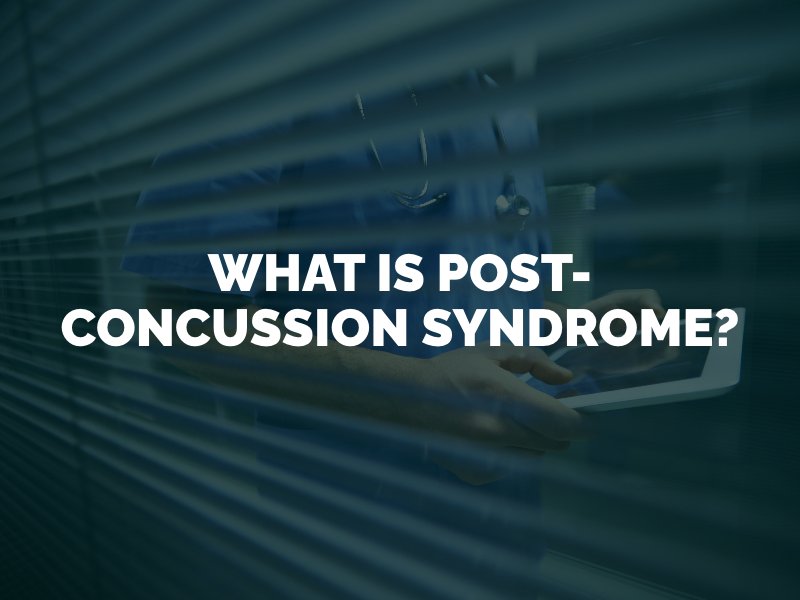Post-concussion syndrome, also known as persistent post-concussive symptoms, refers to the symptoms of head or brain injury lingering for longer than expected. Lasting effects can make recovering from a brain injury much more difficult and taxing for a patient. If you suffered a head or brain injury in an accident in Denver and have been diagnosed with post-concussion syndrome, you may be eligible for financial compensation. Consider speaking with an experienced Denver brain injury attorney to explore your legal options.

There is no exact timeline for brain injury recovery, as each case is unique. However, doctors can give patients estimates for approximately how long it should take them to reach the point of maximum medical improvement based on injury severity. A mild concussion, for example, should take around two weeks to heal. If a concussion or brain injury takes much longer than expected to heal, the patient may be experiencing post-concussion syndrome.
The lingering symptoms associated with post-concussion syndrome can include:
Post-concussion syndrome can come with symptoms that are cognitive, physical, behavioral or emotional. It is important to communicate frequently with your doctor about how you are feeling and what you are experiencing in the aftermath of a traumatic brain injury. If your symptoms persist for longer than two months after suffering a head or brain injury, a doctor may diagnose you with post-concussion syndrome.
Post-concussion syndrome can occur after any type of trauma or injury to the head. It is not completely understood why some people experience lingering symptoms after a brain injury while others do not. It may be more common in people who have had previous concussions or head trauma, as well as those with a prior history of headaches. Patients who are younger, older and female appear to be more susceptible, as well.
The risk of developing post-concussion syndrome does not appear to be connected to the severity of the head or brain injury. Some patients with post-concussion syndrome were initially diagnosed with mild to moderate brain injuries, while others had severe or life-threatening injuries. You do not have to have lost consciousness at the time of the injury to develop persistent post-concussive symptoms.
In general, post-concussion syndrome is not permanent. Most patients who are diagnosed with this condition can make full recoveries with rest. Post-concussion syndrome can last weeks to months. However, for some brain injury survivors, symptoms last for a year or longer. Patients can rely on several types of treatments to help manage and ultimately abate symptoms of a head injury. This may include medications such as antidepressants or migraine and pain medicines, as well as counseling and psychotherapy. A specialist such as a neurologist may also be involved in a patient’s recovery.
Post-concussion syndrome can make it even harder for an accident victim to recover from a head or brain injury. Patients may experience long-term health problems and related mental stress or anxiety due to persistent symptoms that won’t go away. Their conditions may require thousands of dollars in medical care and make it difficult to work, as well as cause immense pain and suffering. If negligence caused the victim’s brain injury, financial compensation may be available.
Speak to personal injury attorney in Denver, Colorado for information about a potential claim if someone else’s negligence caused your accident. Negligence, or the failure to use ordinary care, could entitle you to financial compensation if you have been diagnosed with a brain injury followed by post-concussion syndrome. Call Fang Accident Lawyers today for a free case consultation with an attorney.